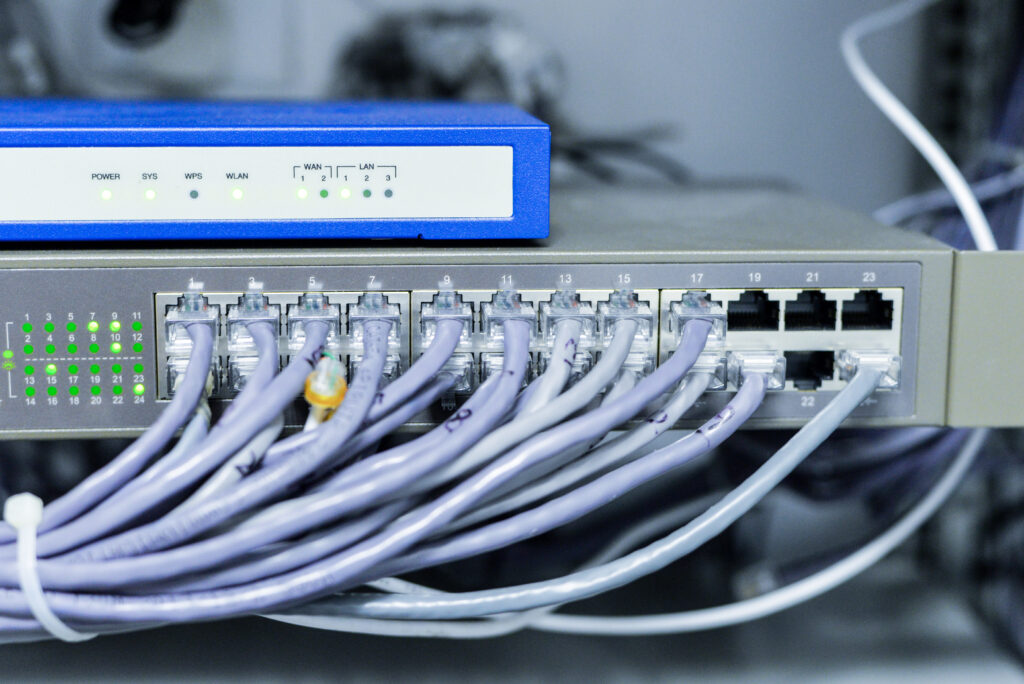Data breaches and compliance failures can cost businesses millions. Organizations handling sensitive information—whether medical records, payment details, or personal data—must comply with strict security regulations. However, achieving and maintaining compliance is a challenge. It requires continuous monitoring, risk mitigation, and regulatory expertise to ensure data remains protected.
HIPAA (Health Insurance Portability and Accountability Act) and PCI DSS (Payment Card Industry Data Security Standard) are two of the most critical compliance frameworks. Non-compliance can result in:
- Financial penalties reaching up to $1.5 million per year for HIPAA violations.
- Cybersecurity breaches leading to data leaks and ransom demands.
- Legal consequences, including lawsuits and regulatory scrutiny.
Maintaining compliance is difficult, but managed IT services provide a proactive approach. By offering real-time monitoring, security automation, and regulatory expertise, these services help businesses stay compliant and avoid costly violations.
How Managed IT Services Ensure Compliance
Compliance is a continuous process, not a one-time task. Regulatory requirements evolve, and cyber threats grow more sophisticated. Businesses need expert IT security solutions to stay ahead of these challenges.
Key Services Offered by Managed IT Providers
- Continuous Monitoring & Threat Detection – Identifies security risks before they become incidents.
- Data Encryption & Access Control – Protects sensitive information from unauthorized access.
- Regulatory Compliance Audits – Ensures businesses meet industry security standards.
- Cloud & Network Security – Strengthens IT infrastructure against cyber threats.
- Incident Response & Recovery – Reduces downtime and ensures business continuity after a security event.
Instead of reacting to compliance failures, businesses can prevent them with expert IT management.
HIPAA Compliance: Strengthening Healthcare Security
The Impact of HIPAA Compliance
Healthcare organizations handle sensitive patient data daily. A single breach can expose thousands of records, leading to legal and financial consequences.
Under HIPAA, organizations must protect Protected Health Information (PHI) with strict security measures. Non-compliance can result in:
- Fines ranging from $100 to $50,000 per violation.
- Criminal charges for intentional HIPAA violations.
- Loss of patient trust and reputational damage.
How Managed IT Services Help Healthcare Providers Stay Compliant
Managed IT providers implement HIPAA-compliant security frameworks that secure patient data while simplifying compliance audits.
- Electronic Health Record (EHR) Security – Encrypts patient data and controls access.
- Access Control & Multi-Factor Authentication (MFA) – Prevents unauthorized system access.
- Automated HIPAA Compliance Reports – Simplifies audits and regulatory reviews.
- 24/7 Network Security Monitoring – Detects potential threats in real time.
- Security Awareness Training – Educates employees on HIPAA regulations and cybersecurity best practices.
With the right IT partner, healthcare providers can focus on patient care while ensuring data security and compliance.
PCI DSS Compliance: Safeguarding Payment Transactions
Why PCI Compliance Matters
Every business that processes credit card transactions must comply with PCI DSS. This framework helps prevent financial fraud and protects cardholder data from cyber threats.
Risks of Non-Compliance:
- Fines between $5,000 and $100,000 per month from payment processors.
- Increased risk of fraud and unauthorized access to payment data.
- Loss of customer trust due to security breaches.
How Managed IT Services Support PCI Compliance
A managed IT provider ensures compliance with PCI DSS security controls, reducing the risk of fraud and cyberattacks.
- Encryption & Tokenization – Protects payment data from unauthorized access.
- Firewall & Intrusion Detection – Blocks cybercriminals from accessing payment processing systems.
- Regular Security Audits & Vulnerability Assessments – Identifies security gaps before they are exploited.
- Incident Response Planning – Ensures rapid recovery from security breaches.
- Secure Remote Access & Employee Training – Strengthens internal security protocols.
By outsourcing PCI compliance to security experts, businesses can process transactions securely while protecting customer data.
Emerging Cyber Threats That Impact Compliance
Even with security regulations in place, cybercriminals continue to evolve their tactics. Compliance does not eliminate security risks—it mitigates them.
Top Cyber Threats Affecting Businesses Today
- Ransomware Attacks – Hackers encrypt sensitive data and demand payment for its release.
- Phishing & Social Engineering – Cybercriminals trick employees into revealing login credentials.
- Insider Threats – Employees or vendors mishandle or leak confidential data.
- Cloud Misconfigurations – Poorly secured cloud storage leads to accidental data exposure.
How Managed IT Services Reduce Cybersecurity Risks
- AI-Powered Threat Detection – Identifies and responds to threats in real time.
- Security Patch Management – Ensures all software and systems remain updated.
- User Access Controls – Restricts access to sensitive information.
- Disaster Recovery & Data Backups – Ensures rapid recovery from cyberattacks.
By addressing these risks proactively, managed IT services protect businesses while ensuring regulatory compliance.
Choosing the Right Managed IT Provider
Not all IT providers specialize in compliance security. Businesses should carefully evaluate providers based on:
- Industry-Specific Experience – Expertise in HIPAA, PCI DSS, and regulatory compliance.
- Advanced Security Tools – AI-driven monitoring, encryption, and risk management solutions.
- Audit & Compliance Support – Guidance through security assessments and audits.
- 24/7 Security Operations Center (SOC) – Continuous monitoring for potential threats.
An experienced managed IT provider doesn’t just secure data—it ensures long-term compliance and business resilience.
Final Thoughts
Maintaining HIPAA, PCI DSS, and compliance security is critical for businesses handling sensitive data. Managed IT services reduce security risks, ensure compliance, and protect against cyber threats.
By partnering with a trusted IT provider, organizations gain:
- Continuous compliance monitoring
- Cybersecurity risk management
- Audit-ready security frameworks
- Proactive threat detection & response
Security compliance isn’t just about avoiding fines—it’s about protecting data, customers, and business longevity.





